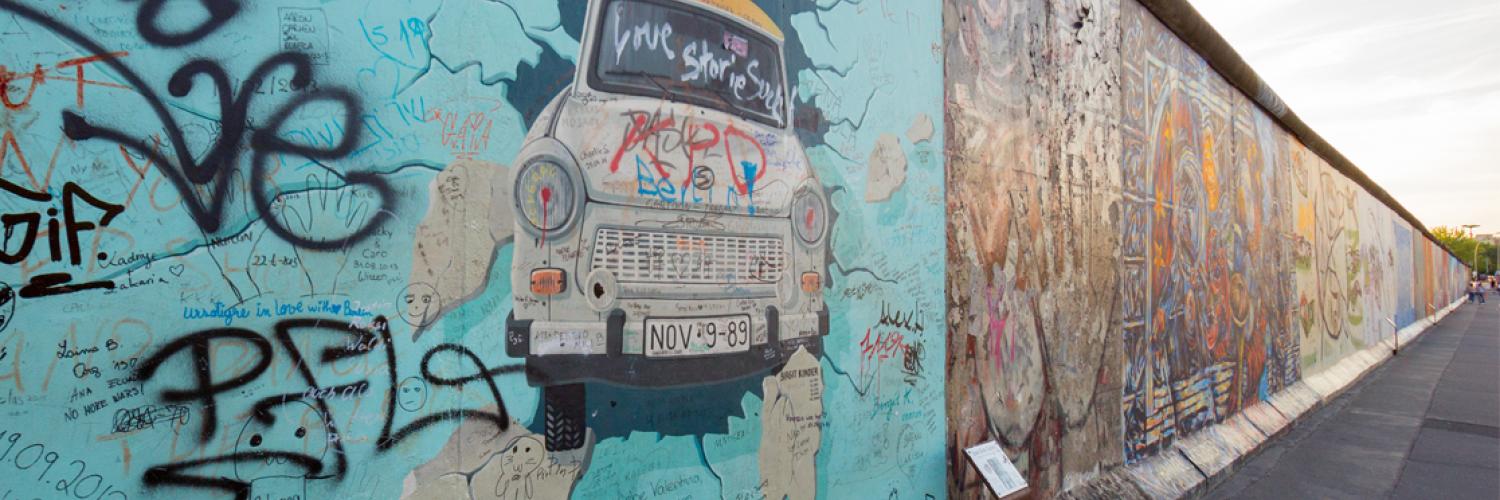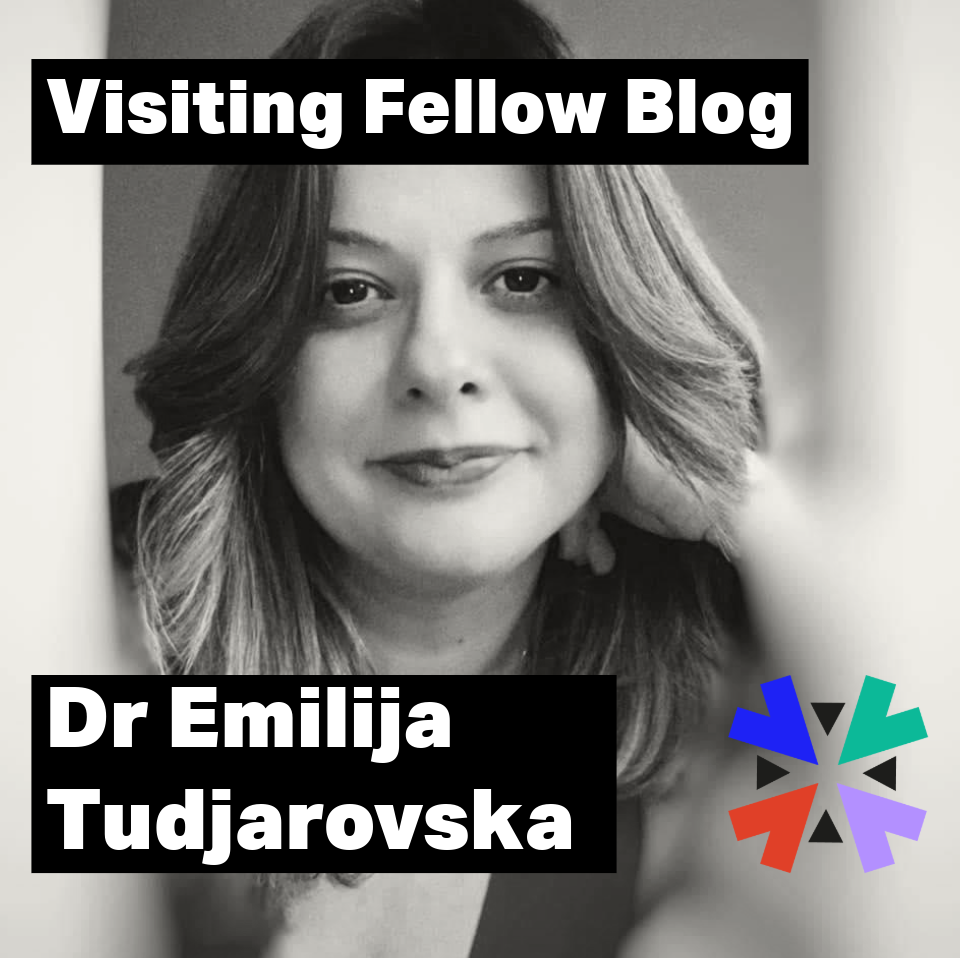Rethinking Europe's East-West Divide
About
2024 marks numerous important anniversaries: 75 years since the establishment of the Council of Europe and NATO, the 35th anniversary of the fall of the Berlin Wall, 25 years since the launch of the Stabilisation and Association Process for the Western Balkans and the 20th anniversary of the EU’s ‘Big Bang’ enlargement. Celebrating the historic enlargement, the-then President of the European Commission Romano Prodi remarked that ‘the divisions of the Cold War are gone’ and Le Monde declared ‘Europe – a new continent.
Two decades later, not only are Central and Eastern European countries repeatedly defined by their communist legacy rather than their integration into the EU and NATO, but the study of Europe remains largely construed by an East-West divide. The continuous application of outdated concepts and ways of thinking about Eastern and Western Europe not only reproduces lazy stereotypes but also undermines our understanding of the continent. How we study Europe has important implications for what we know and what we teach. More importantly, research has real-world impact as it shapes policy debates and influences the next generation of scholars and policymakers.
We set up this research network with the aim of challenging outdated ways of studying Europe, dismantling disciplinary siloes and starting new conversations about knowledge creation.
- We are keen to encourage the advancement of a new research agenda which sheds light on European interconnectedness with a focus on structural dependencies and diffusion processes. This approach has a strong analytical potential to contest the ‘othering’ of Eastern Europe, which is often portrayed as inferior, illiberal and populist.
- We are particularly interested in exploring the impact of the EU on democracy, civil society and public participation in Europe; enlargement and the future of European integration, EU technocratic governance, the transformation of party systems and national parliaments, populism, industrial policy and growth models, migration, labour markets and the welfare state, and digital policy-making.
- We aim to promote novel research and existing studies that critically engage with Europe’s East-West divide(s).
- We are committed to creating a common space for dialogue and networking.
- We are determined to build an inclusive interdisciplinary community. One of the key goals of the network is to give space and voice to early career researchers from across Europe by supporting them to attend conferences, develop their research, and build collaborations.
- We intend to build bridges between the academic community and policy experts and practitioners with the aim to facilitate knowledge exchange and contribute to the policy debates on EU enlargement and the future of European integration.
We have started small, but we aim high and we would like to see this network as a collaborative space for people whose research and expertise will make a difference to how we study, teach and understand Europe.
If you would like to join us:
You can follow us @EastWestDivide on X (twitter) and sign up for our mailing list. To become a member of the network and/or share ideas, email us at [email protected].
Events
Next events:
Rethinking Europe’s East-West Divide in the Age of Geopolitics theme track, UACES Conference, 31 August – 3 September 2025, Liverpool.
Recent shifts in global competition, closely linked to geopolitical strategies, pose significant challenges to European integration. In an increasingly Geotech world, competition over innovation, resources and influence has challenged the European Union’s international standing and economic model. However, the EU’s quest for strategic autonomy also provides opportunities for advancing European integration and has shaped the development of wide range of EU policies including enlargement, new industrial policy, and defence and security. This track seeks and ask: What has been the role of CEE in shaping policy developments and what agency do CEE countries have to influence the EU’s way forward? How have current geopolitical realignments impacted domestic politics in CEE and how do the politics of CEE states in turn shape EU policy.
We invite different contributions to unpack these challenges and discuss how to rethink Europe’s East-West Divide in the changing geopolitical context.
Submit your proposals by 26 January 2025.
Past events:
Rethinking Europe’s East-West Divide: Who will lead the EU? seminar, 5 November 2024, European Studies Centre, St Antony’s College, University of Oxford.
If you missed the seminar, you can watch the recording or read the blog post.
Rethinking Europe's East-West Divide theme track, UACES Conference,1-4 September 2024, Trento.
‘Studying East and West Together: Beyond the Disciplinary Iron Curtains’ and ‘Democracy in Central Eastern Europe in Comparative Perspective’ Panels at International Conference of Europeanists (CES) conference, 3-5 July 2024, Lyon.
Network Launch Conference: Rethinking Europe’s East-West Divide, 14-15 March 2024, St Antony’s College, University of Oxford.
If you could not join us, you can watch the recordings from the conference:
- Introduction & Network Launch
- Panel 5: Risks to Representative Democracy in the European Union
- Panel 6: Rethinking Europe’s East-West Divide - 20 Years since the Big Bang Enlargement
- Panel 7: Rethinking Europe’s East-West Divide and European Integration in a New Geopolitical Era
Blog
Coming soon!
DPIR’S Dr Eli Gateva awarded University Association for Contemporary European Studies (UACES) funding to analyse Europe’s East-West divide.

Fragment of the East Side Gallery, a 1.3 km long part of the original Berlin Wall. | Image: VanderWolf Images/ Shutterstock.
DPIR’s Departmental Lecturer in European Union Politics Dr Eli Gateva has been jointly awarded UACES Research network funding with Dr Julia Rone (University of Cambridge) and Dr Emilija Tudzarovska (Charles University, Prague/Czech Academy of Sciences) to launch and develop ‘Rethinking Europe’s East-West Divide’ network.
The network aims to overcome disciplinary siloes and fully integrate the study of Central and Eastern Europe (CEE) into mainstream European Politics and European Union Studies. Their term as convenors will last for three years, running from 1 January 2024 to 31 December 2026.
With a view to building an inclusive interdisciplinary community, the network brings together a diverse group of scholars at various stages of their careers; with expertise in political science, history and political economy; based in more than 20 institutions across 14 countries.
Furthermore, the network is committed to creating a platform for voices and perspectives, often marginalised in the field of European studies. The network will encourage studying East and West together by fostering lively academic exchange at online and in-person events, as well as networking between scholars interested in comparing both regions.
"As ten countries prepare to celebrate 20 years of EU membership, and with enlargement firmly back on the Union’s agenda, there is no better time to rethink Europe’s East-West divide, challenge outdated stereotypes and advance a novel research agenda." - Dr Eli Gateva
The network will organise panels on Central and Eastern European politics in a broader comparative perspective at major conferences (European Consortium for Political Research (ECPR), Council for European Studies (CES), UACES) boosting the visibility of the network and expanding its membership.
As the network will support the development of an edited book on Central and Eastern European Politics, its publication will have a long-lasting impact on the study of the region. Furthermore, it will be a stepping stone to new research projects and collaborations.
A network launch conference will be held on Thursday 14 and Friday 15 March at St Antony’s College in Oxford.
Julia Rone joins new project: Rethinking Europe’s East-West Divide
Author(s): Minderoo Centre for Technology and Democracy

Dr Julia Rone has been jointly awarded funding to integrate the study of Eastern and Central Europe with mainstream European Political studies.
Dr Julia Rone, Research Associate at the Minderoo Centre for Technology and Democracy, has bene jointly awarded UACES Research network funding with Dr Eli Gateva (University of Oxford) and Dr Emilija Tudzarovska (Charles University, Prague/Czech Academy of Sciences).
The funding will be used to launch a new network: ‘Rethinking Europe’s East-West Divide’.
The network aims to overcome disciplinary siloes and fully integrate the study of Central and Eastern Europe (CEE) into mainstream European Politics and European Union Studies. Their term as convenors will last for three years, running from 1 January 2024 to 31 December 2026.
With a view to building an inclusive interdisciplinary community, the network will bring together a diverse group of scholars at various stages of their careers; with expertise in political science, history and political economy; based in more than 20 institutions across 14 countries.
To mark the launch of the network, the Department of Politics and International Relations at Oxford are hosting two day conference. Julia Rone and her co-conveners will be hosting a number of thematic panels and events.
Visiting Fellow Blog: Emilija Tudzarovska
Author(s): Minderoo Centre for Technology and Democracy

Dr Emilija Tudzarovska – Visiting Fellow Blog.
This term, the Minderoo Center for Technology and Democracy (MCTD) welcomed Visiting Fellow Dr Emilija Tudzarovska (@emitudzarovska), Lecturer in European Politics at Charles University in Prague and a Researcher at the Czech Academy of Sciences, Institute of Sociology.
During her visit, Emilija undertook critical research of the processes of legitimation and parliamentary scrutiny over the digital sector in the EU.
In her research, she investigates the normative value of the democratic scrutiny provided by the national parliaments in the context of “surveillance capitalism”, contributing to a joint forthcoming publication with MCTD Research Associate Dr. Julia Rone.
By focusing on the regulation of AI in the EU, the research explores the capacities of different national parliaments to provide scrutiny of digital sovereignty policy, and AI more specifically. The research specifically focuses on the case of the CEE countries, in the broader context of crisis of democratic representation in the EU.
Her research is also part of the recently jointly awarded UACES Research network funding with Dr Julia Rone (MCTD) and Dr Eli Gateva (University of Oxford), as well as her work on populism for SYRI (@institutSYRI) at the Czech Academy of Sciences.

